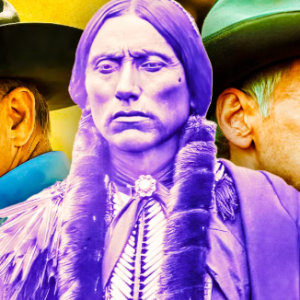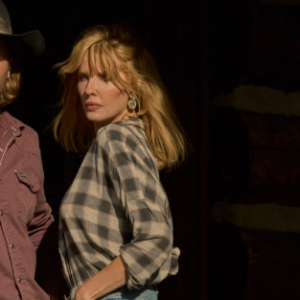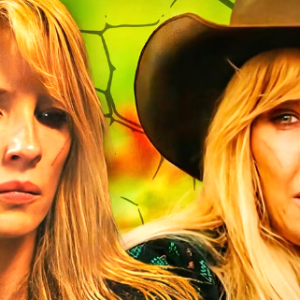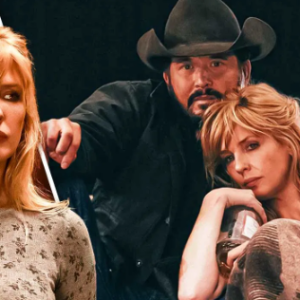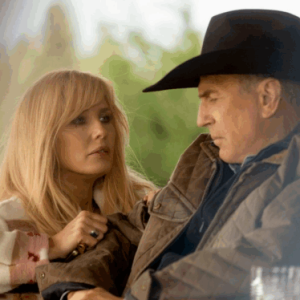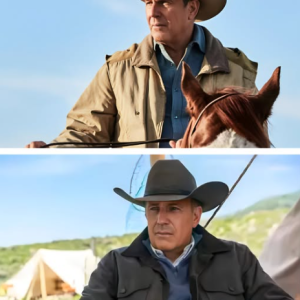The acclaimed series Yellowstone has captivated audiences with its sprawling narrative of the Dutton family and their relentless fight to protect their vast Montana ranch. Amidst real-world casting changes and fan speculation, a critical revelation from the show’s creative team has clarified a pivotal narrative decision: the demise of patriarch John Dutton, portrayed by Kevin Costner, was an intrinsic part of the story’s design from its very inception, regardless of Costner’s eventual departure. This insight underscores the show’s long-term vision, emphasizing that John’s death was not a reaction to external circumstances but a calculated, necessary step for the progression of the Dutton legacy and the resolution of the overarching saga.
As articulated by a key figure within the show’s narrative development, John Dutton’s eventual passing was always the predetermined conclusion. “My understanding is that [John’s death] was always the conclusion,” the executive explained, “because at the end of the day the solution that Kayce discovers is not a solution that would have been possible if John Dutton were alive. Inevitably, at some point, he was going to die. That is the inevitability of it. Even if there had been 17 more seasons with Kevin Costner, eventually in the story that is the saga of Yellowstone, that’s what happens. The patriarch passes and the legacy moves onto his children.” This statement fundamentally shifts the perception of John’s fate from a casualty of production disputes to a deliberate narrative choice, deeply embedded in the very DNA of the Yellowstone universe.
This “inevitability” speaks to a common trope in epic family sagas: the passing of the torch. While John Dutton stood as an immovable force, fiercely protecting his family’s land and traditions with an iron will, his very presence represented an old order. His methods, often violent and uncompromising, embodied a deep-seated resistance to change. For the Dutton legacy to truly evolve and for the complex, deeply entrenched conflicts surrounding the ranch to find any semblance of resolution, the generational patriarch had to make way for new leadership and new approaches. His death, therefore, becomes less about tragedy and more about narrative necessity, clearing a path for the next generation to confront the challenges of the modern world without the rigid adherence to the past that John often embodied.
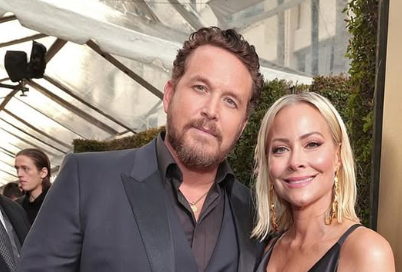
The core of this narrative imperative lies in “the solution that Kayce discovers.” Kayce Dutton, played by Luke Grimes, has always been the family’s most conflicted member, torn between his loyalty to his father and his deep respect for the Indigenous people of the Broken Rock Reservation, particularly his wife Monica and their son Tate. Throughout the series, Kayce undergoes profound spiritual journeys, often involving visions and encounters with ancestral spirits. These experiences culminate in a realization that the only true path to peace for the land and for his family involves a radical act of relinquishment. John Dutton, a man who famously declared, “I’d never give an inch,” would have fundamentally opposed any solution that involved surrendering the ranch. His life was defined by holding onto the land at all costs. Kayce’s vision, therefore, necessitates John’s absence, as it represents a paradigm shift that John, in his traditionalist and unyielding stance, could never have embraced.
The pivotal moment of the series finale confirms this necessity: Beth (Kelly Reilly) and Kayce make the monumental decision to sell the Dutton ranch to the Indigenous Broken Rock Reservation. This is not merely a transaction; it is a profound symbolic act, a culmination of centuries of conflict over the land, and a bold step towards an uncertain, yet potentially more harmonious, future. For generations, the Duttons have defended their claim with blood, sweat, and tears, often at the expense of the Native American community whose ancestral lands they occupy. The sale signifies an acknowledgement of historical injustices and a radical departure from the Dutton family’s entrenched narrative of perpetual ownership. Such a decision, requiring an unprecedented level of sacrifice and a redefinition of what it means to be a Dutton, could only be enacted by a generation no longer tethered to John’s unyielding principles.
This resolution is further enriched by its deep roots in the Yellowstone universe’s sprawling timeline, most notably through the 1883 prequel series. The finale of Yellowstone explicitly ties into a prophecy foretold by Elsa Dutton (Isabel May) in 1883. Elsa, a spirited and perceptive ancestor, had a vision of the future of the Dutton land and its eventual return to its original custodians. Her voice cameo in the Yellowstone finale serves as a powerful narrative anchor, connecting the contemporary struggles of Beth and Kayce directly to the origins of their family’s claim on the land. This prophetic thread weaves together the narratives of 1883, 1923, and Yellowstone, transforming a modern-day drama into a multi-generational epic about destiny, sacrifice, and the enduring connection between people and the land they inhabit. The echoes of Elsa’s words underscore that the journey of the Duttons has always been predestined, a saga of stewardship, conflict, and eventual reconciliation that transcends any single character.
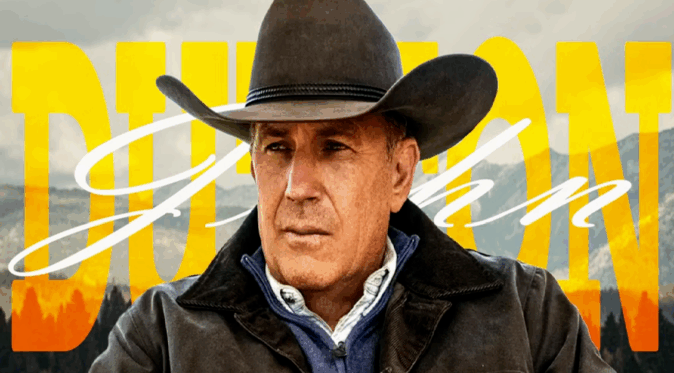
With John Dutton’s eventual passing and the ranch’s transfer, the Dutton legacy is profoundly redefined. For Beth, the fiercely loyal and protective daughter, the fight shifts from physical defense of the land to navigating the complexities of its new ownership and ensuring the family’s influence persists in a different form. For Kayce, the reluctant heir, it is the culmination of his internal struggle, a step towards healing the spiritual wounds of his family and achieving a unique kind of peace. Even for Jamie, the estranged adopted son, John’s absence fundamentally alters the landscape of power and succession, forcing him to redefine his ambitions and his place within the family’s fractured dynamic. The themes of tradition versus progress, land ownership, family loyalty, and the corrupting influence of power, which have always been central to Yellowstone, take on new dimensions as the remaining Duttons navigate a world without their patriarch.
In essence, the predetermined fate of John Dutton was not an unfortunate consequence of real-world events but a carefully plotted narrative pivot point. It allowed the show to move beyond the confines of a single patriarch’s reign and fulfill the larger, multi-generational destiny of the Dutton family and their ancestral land. By allowing the old guard to pass, Yellowstone ensures that its saga remains dynamic, continually exploring the complex interplay of heritage, sacrifice, and the relentless pursuit of a future, even if that future looks vastly different from the past. The legacy continues, not in spite of John Dutton’s end, but because of it.
